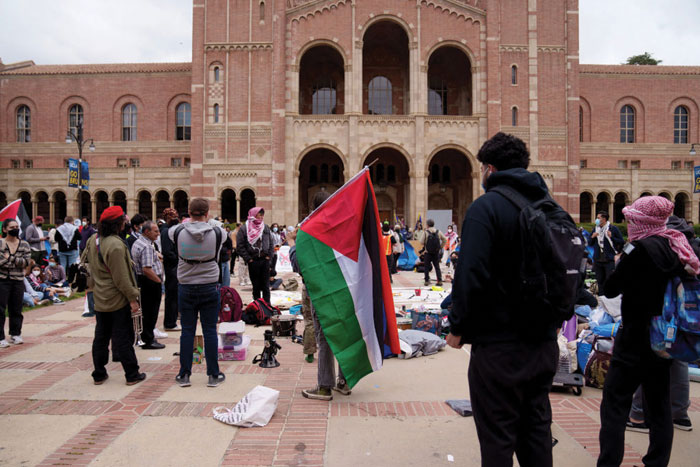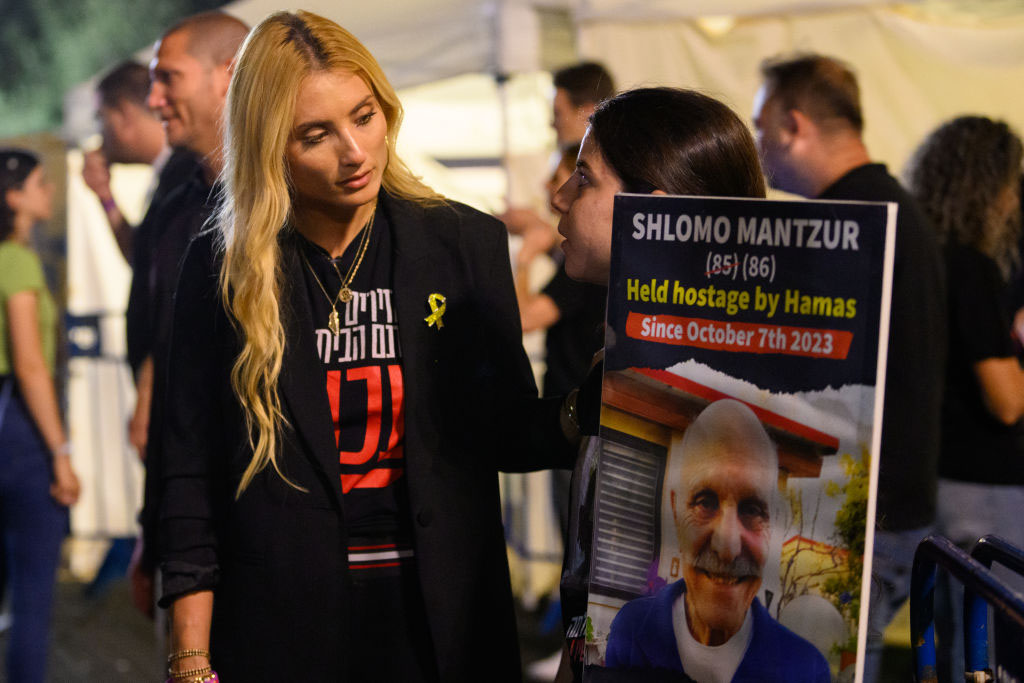“2083: A European Declaration of Independence” – the manifesto of the Oslo bomber Anders Behring Breivik – is a baggy 1,500-page document, made up in large part of other people’s essays on the Islamic threat to Europe. It can be ascertained from it that his ideology centres about a vehement opposition to multicultural, so-deemed ‘cultural Marxist’ and the ‘Islamisation’ of Europe.
He wishes, amongst other things, to ban the Qu’ran and other parts of the Islamic canon, outlaw the construction of mosques, end mass Muslim immigration to Norway and prevent the accession of nations with large Muslim populations including Turkey and Bosnia-Herzegovina to NATO and the EU. However, the element that would immediately appear most disturbing, and have the effect of curdling Friends of Israel’s blood, is that he is a self-described Zionist, or more accurately Israeli nationalist, and a passionate and zealous one at that.
Breivik’s purported Israeli nationalism is something entirely different from everything we might recognise as Zionism. Although Herzl’s manifesto was indeed a call to Jewish nationalism, it was written within the context of fin de siècle European movements to create new nation-states which united all peoples which belonged to a certain nationality or linguistic group, such as Germans and Italians.
By contrast, the Oslo bomber’s manifesto explicitly rejects more liberal or general interpretations of Zionism familiar to the United States and Western Europe. When addressing the question of Nazism, Breivik that the “so-called liberal Jews” were disloyal, presumably during the interbellum at a time when calls to emigrate to Palestine increased in volume, “similar to the liberal Jews today that opposes nationalism/Zionism and supports multiculturalism”[sic].
“Jews that support multiculturalism today”, he adds, “are as much of a threat to Israel and Zionism as they are to us (emphasis added). So let us fight together with Israel, with our Zionist brothers against all anti-Zionists, against all cultural Marxists/multiculturalists”. His conclusions are draped in the language of European anti-Semitism, echoing the calls made in Soviet Russia after the Second World War to target ‘rootless cosmopolitans’.
The nationalism Breivik stresses is indeed one born in the postwar crucible and infused with the more aggressive and destructive ideologies such as Soviet communism, and in particular Nazism and its neo- strand. His nationalism is exclusive and discriminatory: one which speaks to notions of racial and religious purity, an opposition to political pluralism and left-wing ideologies, and in the most modern European context, an attachment to what has been dubbed “Islamophobia”, but which might more accurately if less pithily be called anti-Muslim discrimination.
A sizeable chunk of Breivik’s support for Israel is derived from this very negative emotion. His particular interpretation of the source of Israeli-Palestinian antagonism derives from the Crusades, which is an obsession for him. Breivik cites Serbian author Srđa Trifković, in order to argue that Palestinian opposition to Israel is derivative of a repulsion to the idea of a Jewish state existing on land which is part of the Dar al-Islam, or the House of Islam. This reaction, Breivik asserts, has direct historical parallels to the time of Saladin and the movement to demolish the Christian Crusader states of Antioch and Jerusalem.
While Breivik often in his manifesto speaks of the importance of defending Israel, he never goes so far as to explicitly set how it ought to be defended, and more importantly what it is he thinks he is defending. It certainly isn’t any of the values associated with Israel by those liberal Zionists he frequently demonises: democracy; open political discourse; the rule of law. Breivik in fact stresses a support for some elements of present policy that have turned the international community against Israel, including the Security Barrier, which he describes as “working as intended”.
Rather, Breivik seems to perceive Israel as the frontline in a war that he perceives all Muslims are waging against Jews and Christians: “If Israel loses in the Middle East, Europe will succumb to Islam next”. He includes in the manifesto a chunk of an interview with Mohammad Asghar, an ‘ex-Muslim’, who states that Muslims “intend to destroy Israel” and subsequently will “take over the Earth from the followers of other religions” by acquiring deadly, radioactive weaponry and then expanding their populations in non-Muslim nations to the point where they will demand autonomy and later independence.
This kind of support for Israel, if it can be deemed as such, is wholly negative and hateful, borne out of a visceral detest for Muslims. And, it would appear to span the far-right parties of Europe, if not quite in the occasionally eccentric fashion of Breivik with his attachment to conspiracy. In the United Kingdom, the leader of the British National Party Nick Griffin, who in 1998 referred to the Holocaust as “a mixture of Allied wartime propaganda, extremely profitable lie, and latter witch-hysteria”, came out in 2009 in support of Operation Cast Lead, saying he supported Israel’s war “against the terrorists”.
His particular spin on the issue – an alliance with Israel as a means to a war against Islam – is not played out in the party’s manifesto, which on foreign policy says nothing at all about Israel or the Israeli-Palestinian conflict. Rather, their main aim is to “reach an accord with the Muslim world whereby they will agree to take back their excess population which is currently colonising this country”, which the rest of their efforts focused on the other menace, the European Union. (A Union, it should be noted, Breivik believed to cooperating with the Arab world to ‘Islamise’ Europe).
Attempts to forge links with Israel are also deeply cynical and opportunistic, part of a movement to rebrand the far-right as palatable for a twenty-first century audience. The founder of the Front National in France, Jean-Marie Le Pen, had a long history of open anti-Semitism. He was convicted by a Munich court in 1999 for the offence of “minimising the Holocaust” after telling a German far-right meeting that Nazi concentration camps and the gas chambers are “what one calls a detail”. He was fined by a French court twelve years prior for a similar offence.
His daughter and new leader of the party, Marine, has sought to move away from his legacy on Jewish matters, affirming Israel’s right to exist and criticising the Iranian leadership’s attempt to wipe the state of the map through its nuclear programme. “The Front National has always been Zionistic and always defended Israel’s right to exist”, she told Haaretz in an interview given in January of this year. (Though, in the same interview, Le Pen seems to reject the idea of Jewish emigration from France to Israel, saying: “The Jews of France are Frenchmen, they’re at home here, and they must stay here”).
At once, it is important to stress again that with the far-right, a yearning for Zion comes with a bitter anti-Islamic taint. “The shared concern about radical Islam explains the relationship”, Le Pen said of the new relationship between her party and Israel. The Front National has made waves in France with her remarks which compared Muslim emigration and Islamic prayer in the street to the Nazi occupation. “It is an occupation of sections of the territory, of districts in which religious laws apply,” she told a gathering of supported in Lyon in December 2010.
Thus it seems evident that any far-right support in Europe for the State of Israel does not appear to be borne out of a newly-discovered fondness for the Jewish people. (Indeed, in the case of Griffin, he has spoken previously in favour of mono-ethnic states – Israel is presumably someplace for British Jews to go at such a time as when the far-right resumes the usual animosities towards them). Rather, they hope that, in the current climate of increased hostility between Israelis and Palestinians and the lurch to the right in domestic Israeli politics, they can forge some kind of dirty alliance in common cause against Islam and the Muslims of Europe.
Just last month for example, German-Swedish neo-Nazi sympathiser and fundraiser Patrik Brinkmann met with Likud MK Ayoub Kara, the former reaching out in order to “establish a unified force to defend our basic Christian-Jewish values”. In this instance, the JTA reports that Foreign Minister Avigdor Lieberman wrote to Prime Minister Benjamin Netanyahu to demand that Kara be prevented from making further trips abroad, with Lieberman accusing Kara of meeting with neo-Nazis and causing damage to Israel’s image.
Need it be said that this is entirely the correct response to such an approach. Israel’s standing in the world can only be diminished by rogue Israeli lawmakers attempting to make hay out of the European far-right’s temporary suspension of its usual pogrom. Any attempts at concord must therefore be rejected, for undoubtedly as Breivik as shown so bloodily, the far-right’s turn towards Israel is potentially as detrimental and as catastrophic for Jews as the movement’s previous overt anti-Semitism, which Israelis and their Friends alike has merely been substituted for a campaign against the Muslims of Europe.





















 More news and opinions than at a Shabbat dinner, right in your inbox.
More news and opinions than at a Shabbat dinner, right in your inbox.